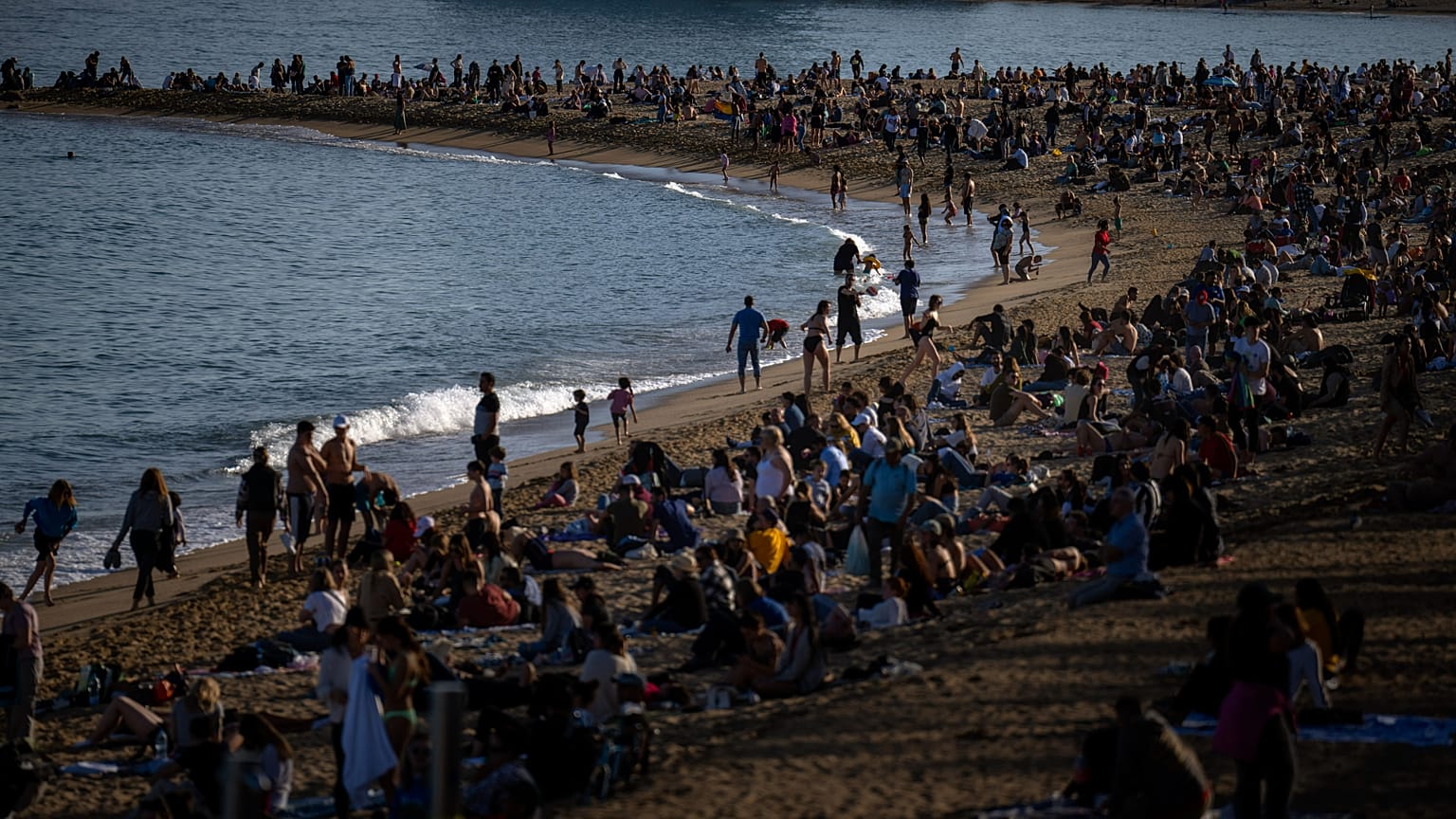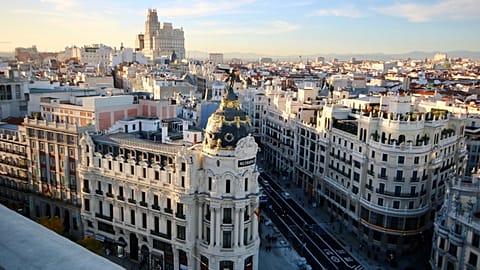Together, the two months saw 22.3 million tourists flock to Spain, far outstripping 2024’s figure of 21.8 million for the same period.
Spain has hit another tourism milestone this year. The country received 11.3 million international visitors in August, according to the National Statistics Institute (INE).
 ADVERTISEMENT
ADVERTISEMENT
 ADVERTISEMENT
ADVERTISEMENT
It marks a 2.9 per cent increase on the same month in 2024 and follows a record-breaking July with 11 million foreign arrivals, a year-on-year rise of 1.6 per cent.
Together, the two months saw 22.3 million tourists flock to Spain, far outstripping 2024’s figure of 21.8 million for the same period.
The surging statistics come despite another summer of fierce anti-tourist protests by embattled residents - and some long-overdue moves by authorities to mitigate overtourism.
Spain smashes tourism records - again
Almost 66.8 million international tourists visited Spain in the first eight months of 2025, another record that surged past last year's equivalent figure by 3.9 per cent, the INE said.
The figure means Spain’s status as a holiday heavyweight remains unchallenged, driven largely by British, French and German travellers.
And changing holiday trends suggest autumn months will continue the record-breaking streak.
Travel habits have shifted dramatically in Spain, with shoulder seasons increasingly favoured over the scorching summer.
Fewer than 40 per cent of Spanish travellers went on holiday in August, the traditional month off. Instead, roughly one in six Spaniards planned to go on holiday in September this year, according to Spain’s National Observatory of Outbound Tourism (ObservaTUR).
Many international travellers are doing the same, keeping beaches, bars and resorts busy long after August.
Hotel and apartment prices in the Canary Islands, a bellwether for Spanish tourism, rose 5.3 per cent between September 2023 and 2024. They are now around 25 per cent higher than in 2019, according to the INE.
Are Spain’s anti-tourism measures falling short of the mark?
Widespread protests have erupted periodically across Spain over the last few years, demanding that authorities address the increasingly unmanageable tourism numbers.
Some mitigation measures have now been introduced.
In September, the government announced the removal of some 53,000 tourist flats from the Single Register of Tourist and Seasonal Rentals, which will now become permanent rentals.
"We have detected thousands of irregularities in many of these homes that are intended to become holiday and tourist rentals. And what we are going to do is remove 53,000 homes from this register so that they become permanent rentals for young people and families in our country," Prime Minister Pedro Sánchez said.
The housing ministry has asked tourist accommodation platforms, such as Airbnb and Booking.com, to remove ads for these accommodations.
Barcelona has announced plans to completely phase out short-term tourist apartments by 2028, returning thousands of properties to the long-term rental market.
In 2023, the city cut the number of daily cruise ship arrivals at its central port from 10 to seven.
Málaga, a summer hotspot that has traditionally drawn a rowdy tourist crowd, launched a campaign to improve visitor behaviour.
A list of 10 strongly suggested rules appeared on buses, billboards and social media, urging visitors to keep noise down, especially at night; avoid shouting or blaring music in residential areas; and use designated bins and toilets.
In the Balearic Islands, stricter controls on alcohol consumption and party boats have been introduced to curb excessive behaviour.
‘The island cannot cope’
Despite measures to curb overtourism, visitor arrivals continue to surge - perhaps because these measures don’t target tourist numbers directly enough. While cracking down on inconsiderate visitor behaviour is vital, some destinations are markedly suffering from the sheer volume of arrivals.
The Canary Islands received more than 1.55 million foreign visitors in March, up 0.9 per cent on the record set in the same month last year.
They are monopolising the archipelago’s resources to the point that locals are being forced to sleep in their cars and even caves as housing gets snapped up by tourism operators.
“We have nothing against individual tourists but the industry is growing and growing and using up so many resources and the island cannot cope,” protester Ivan Cerdena Molina told media last year.
Local campaign groups are now calling for a halt to destructive hotel projects across the islands and the building of a motor circuit on Tenerife; a moratorium on new tourist developments; guaranteed access for residents to healthcare and housing; and a functional ecological tourist tax.

















